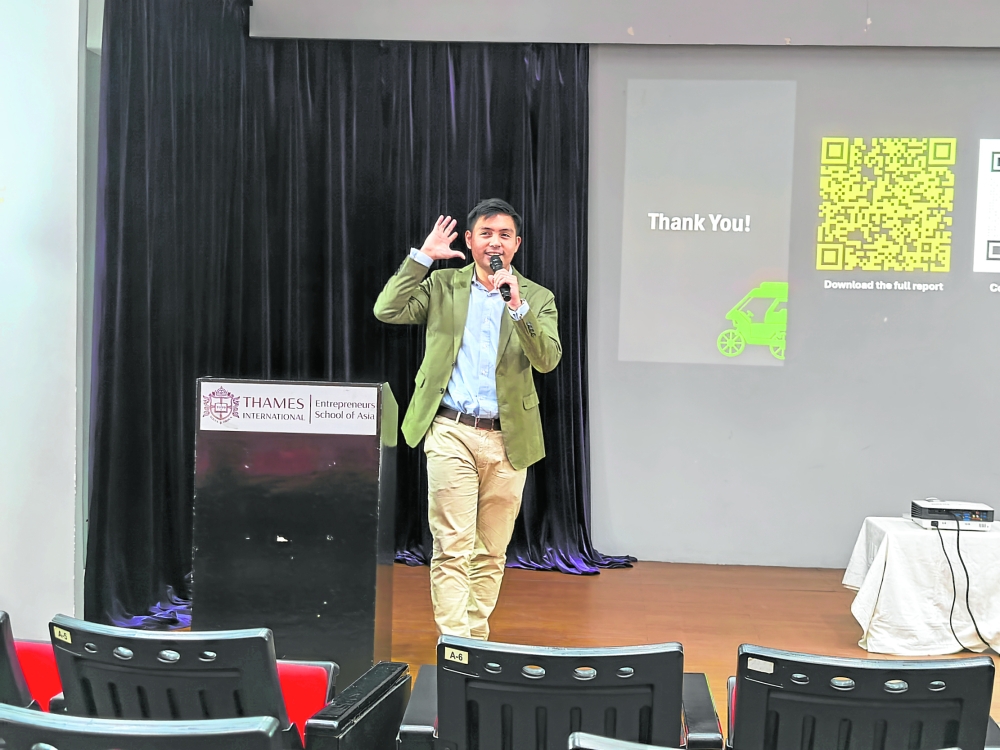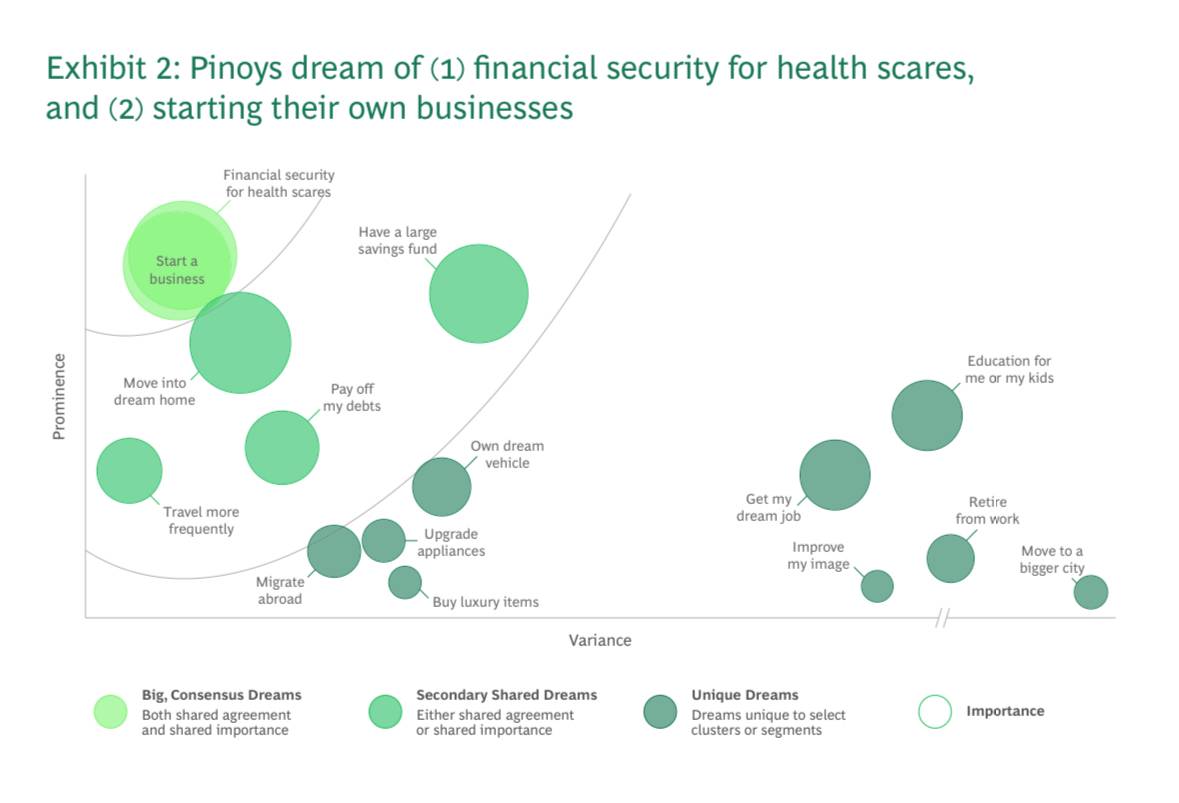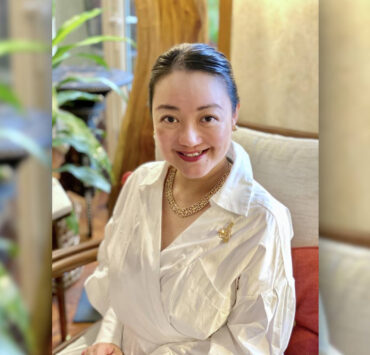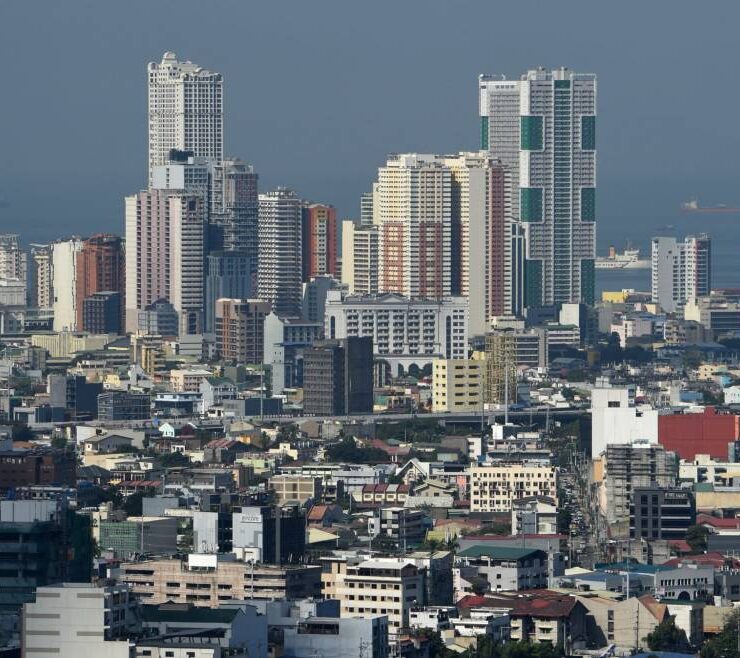Financial security, starting new business top Filipinos’ dreams

What is the Filipino dream?
“In a world where nations often rally around a unifying vision—the American Dream, the Chinese Dream—it is peculiar that the Philippines, the 13th most populous country on the globe, lacks a clear articulation of its own,” says Julian Cua, managing director at Boston Consulting Group (BCG) Manila in the “The Filipino Dream” report.
BCG initiated in late 2024 a survey on what constitutes “The Filipino Dream,” drawing insights from 1,484 individuals across Luzon, Visayas and Mindanao.
The report was authored by Anthony Oundjian, Julian Cua, Lance Katigbak, Anjeli Panis and Lilian Cheong. The highlights were recently shared by Katigbak in a forum hosted by Thames International School.
“Filipinos are still very hopeful and very optimistic. We are still dreaming of a better future, living healthy, prosperous lives. We all share a dream but the reasons they pursue those dreams are very different,” says Katigbak, a principal at BCG Manila.
More than half of surveyed Filipinos dream to be able to fund any medical emergency or health scare, and to start their own business.
Specifically, 58 percent of respondents picked health security as their top choice, while 56 percent opted for entrepreneurship.
Concluding the top 4 list, Filipinos also dream of having a large savings fund (51 percent) and moving into their dream house (44 percent).

3 buckets of dreams
After ranking their dreams, they were categorized into three buckets: big, consensus dreams; secondary shared dreams; and unique dreams.
The first bucket (big, consensus dreams) contains the top two dreams.
The second bucket constitutes aspirations that are worth pursuing, but of a lesser priority—like moving into a dream home, having large savings, paying off debts and traveling more frequently.
Owning a dream vehicle, upgrading appliances, migrating abroad as well as buying luxury items make up the last bucket (unique dreams), or those that are of “higher priority for some people, although not as much as others.”
But the report also brings into focus that only 46 percent of Filipinos are prepared to face a financial crisis.
More health-conscious
“On a more optimistic note, Filipinos perceive themselves as healthier and are actively investing in their health. More than half (58 percent) reported that their health had somewhat or significantly improved compared to the previous year,” says the report.
Filipinos are also spending more on health-care products, with supplements as the top product category, like cough remedies made from lagundi, capsules with mangosteen extract or herbal food supplements to combat sore throat and body ache.
Survey data show that over 60 percent of Filipinos are covered by some sort of health plan such as health maintenance organizations, or are insured by the Philippine Health Insurance Corp. However, only 65 percent of those with health plans are prepared to cover costly medical treatments.
In addition, the report points out that Filipinos fear emergencies befalling not just themselves, but also their families and loved ones.
“As a result, many have turned to traditional savings and lending systems to help build that financial safety net,” the report notes.
Relying on own capability
The pandemic has also sharpened Filipinos’ entrepreneurial skills, the study notes.
More Pinoys started their own business between 2019 and 2023, mostly in retailing, such as opening sari-sari stores or food and beverage stores like karinderyas.
The research also unveils several aspects of how Filipinos view their dreams.
The first aspect shows that their dreams are highly interpersonal: 76 percent say that most of their dreams are for the betterment of their families.
The second aspect shows that Pinoys remain optimistic that they can achieve their dreams: 53 percent say that they are one step closer to achieving their aspirations. This sentiment is stronger in the rural communities (58 percent) than in the urban areas (49 percent).
In pursuing their dreams, Filipinos feel they have to rely more on themselves than seek help from public and private institutions. Sixty-five percent of the participants leverage their educational background to achieve their dreams. This is much higher than their trust in their job (49 percent), employer (43 percent) or big businesses (38 percent).
In addition, Filipinos surmise that public institutions will be of little help in turning their aspirations into reality.
“Our interpretation of this is that Filipinos feel distrusting toward institutions and instead think they must rely on themselves. Dreaming of financial security for health scares is a sign of a lack of trust in the country’s health-care system, while the desire to start a business can be read as a need to build financial stability independent of employment,” the report says.





















